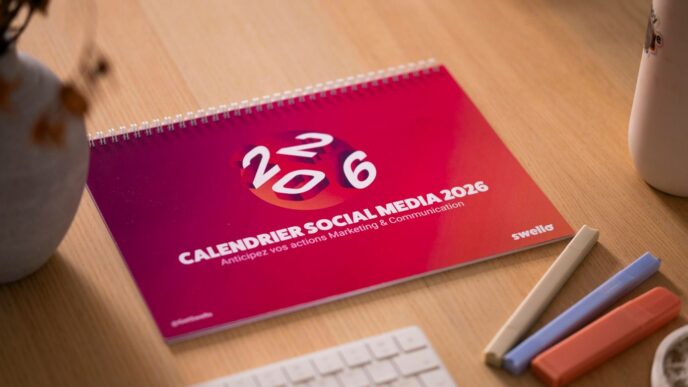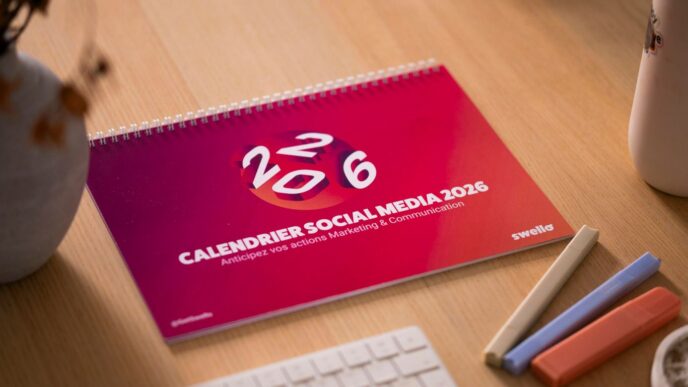Picking the right agency to handle your brand’s marketing and communications can feel like a big deal. There are so many options out there, and you want to make sure you find a partner who really gets what you’re trying to do. An integrated marketing and communications agency might be just what you need to pull everything together. Let’s break down what that means and how to find the best fit for your business.
Key Takeaways
- An integrated marketing and communications agency brings different marketing skills under one roof, offering a single point of contact for your brand’s needs.
- Look for an agency that understands your industry and has a history of successful campaigns to show.
- Make sure the agency’s team has diverse skills that can work together effectively for your projects.
- Transparency in communication and a clear understanding of budget and contract terms are vital for a good partnership.
- Define what success looks like before you start, and work with the agency to track progress towards those goals.
Understanding the Value of an Integrated Marketing and Communications Agency
Defining Integrated Marketing and Communications
So, what exactly is an integrated marketing and communications (IMC) agency? Think of it as a one-stop shop for all your brand’s promotional needs. Instead of hiring separate people for social media, website design, and advertising, an IMC agency brings all those skills under one roof. They work together, making sure your brand’s message is consistent everywhere it shows up. It’s about making all the different parts of your marketing talk to each other, so your audience gets a clear, unified picture of who you are.
The Benefits of a Unified Approach
Why bother with all this integration? Well, it really simplifies things. When one team handles everything, there’s less chance of messages getting mixed up or lost in translation between different vendors. This means your brand’s voice stays the same, whether someone sees your ad on TV, reads your blog, or interacts with you on social media. It also tends to be more efficient. Instead of paying multiple markups for different services, you’re dealing with one main partner. This can save time and, often, money.
Here are a few key advantages:
- Consistency: Your brand message is the same across all platforms.
- Efficiency: Streamlined processes and fewer points of contact.
- Perspective: The agency can see the bigger picture and recommend the best tools, not just the ones they happen to offer.
- Ownership: A single agency takes responsibility for the overall campaign success.
When you’re trying to get your brand noticed, having all your marketing efforts working together, rather than in silos, makes a big difference. It’s like an orchestra playing a symphony versus a bunch of musicians playing different tunes.
When to Consider an Integrated Agency
If your brand is facing a complex marketing challenge, or if you’re looking to launch a new product and need a coordinated push across multiple channels, an IMC agency might be a good fit. It’s also a smart move if you’re tired of managing several different marketing vendors and want a more cohesive strategy. Basically, if you need a lot of different marketing pieces to fit together perfectly, this is the way to go. It’s especially helpful when you’re trying to reach people in various places, like online, in print, or at events, and want all those interactions to feel connected.
Key Services Offered by Integrated Marketing and Communications Agencies
When you’re looking for an agency to help your brand shine, it’s good to know what they actually do. Integrated marketing and communications agencies are basically a one-stop shop for all things marketing. They bring together different skills under one roof, so you don’t have to hire a bunch of separate specialists. This means less hassle for you and a more consistent message for your audience.
Strategic Planning and Market Research
Before any ads get made or social media posts go out, a good agency digs deep. They figure out who your customers are, what they want, and what your competitors are up to. This isn’t just guessing; it’s about using data to build a solid plan. They’ll look at market trends, customer behavior, and your brand’s current position.
- Understanding your target audience: Who are they, really? What makes them tick?
- Analyzing the competition: What are others doing well, and where are the gaps?
- Identifying market opportunities: Where can your brand make a real impact?
- Setting clear goals: What do we want to achieve, and how will we measure it?
This foundational work is what makes everything else effective. Without a clear strategy, marketing efforts can feel scattered and miss the mark.
Creative Development and Brand Identity
This is where your brand’s personality comes to life. It’s not just about a pretty logo; it’s about creating a look, feel, and voice that people recognize and connect with. This includes everything from visual design to the overall tone of your communications. A strong brand identity makes your business memorable and trustworthy.
Content Creation and Messaging
Once the strategy and brand identity are set, it’s time to create the actual stuff people see and read. This means writing compelling copy for ads, social media, websites, and emails. It also involves producing visuals like graphics, photos, and videos. The key is making sure the message is clear, consistent, and speaks directly to your audience. They handle everything from blog posts to video scripts, making sure your story is told right.
Multi-Channel Communications and Media Buying
This is about getting your message out there, everywhere your audience hangs out. An integrated agency knows which channels work best for your goals and budget. They’ll plan and buy ad space across different platforms – think social media ads, search engine ads, maybe even traditional media if it makes sense. They manage all these moving parts to make sure your message reaches the right people at the right time. This includes services like public relations and social media management, tying it all together.
Evaluating Potential Integrated Marketing and Communications Partners
So, you’ve decided an integrated agency is the way to go. Great! But now comes the tricky part: figuring out which one is actually a good fit for your brand. It’s not just about picking the first one you find or the one with the flashiest website. You need to do a bit of digging.
Assessing Industry Expertise and Track Record
First off, does the agency actually get your industry? An agency that has worked with businesses like yours before will already have a head start. They’ll understand the lingo, the usual customer pain points, and what kind of messages tend to land well. It’s like hiring a chef who specializes in Italian food if you want authentic pasta – you wouldn’t ask a baker, right?
Look at their past work. Have they helped brands similar to yours achieve their goals? Don’t be afraid to ask for case studies or examples of campaigns they’re proud of. A solid history of successful projects is a good sign they know what they’re doing and can adapt their strategies.
Here’s a quick way to think about it:
- Industry Knowledge: Do they speak your language? Have they tackled similar market challenges?
- Past Successes: Can they show you proof of good results for other clients?
- Client Feedback: What do their previous clients say about working with them?
You’re not just hiring a service; you’re bringing on a partner. Their past performance is a strong indicator of future results, so pay attention to what they’ve accomplished.
Examining Team Capabilities and Cross-Functional Synergy
An integrated agency is supposed to have all its departments working together like a well-oiled machine. But how do you know if that’s really happening? You need to look at the people behind the agency.
Think about the different skills you’ll need: strategy, creative, content, media buying, PR, social media. Does the agency have specialists in all these areas? And more importantly, do these specialists actually collaborate? A great graphic designer is one thing, but a great graphic designer who can work effectively with a copywriter and a media planner is even better.
Ask about their team structure. Who will be your main point of contact? Will you be working with a dedicated team, or will you be passed around? It’s good to have a core group that understands your brand inside and out.
Understanding Their Approach to Strategy and Execution
How does this agency actually do things? Do they have a clear process for developing strategies and then bringing them to life? You want an agency that doesn’t just come up with cool ideas but also knows how to make them happen effectively.
Ask them about their planning process. How do they research your market and your audience? What steps do they take to build a campaign strategy? And once the strategy is set, how do they manage the execution? Who oversees the different parts of the campaign to make sure everything stays on track and consistent?
It’s also worth asking how they handle unexpected issues. Marketing isn’t always smooth sailing, so knowing they have a plan for when things go sideways is important. A good agency will be transparent about their methods and show you how they connect the dots between planning and doing.
Factors for Selecting the Right Integrated Marketing and Communications Agency
So, you’ve decided an integrated agency is the way to go. That’s a big step! Now comes the part where you actually pick one. It’s not just about finding a company that talks a good game; it’s about finding the right fit for your brand. Think of it like hiring a new team member – they need to understand your goals, work well with your existing crew, and be upfront about what they can do and how much it’ll cost.
Aligning Services with Your Business Objectives
First things first, what are you actually trying to achieve? Don’t just say ‘more sales.’ Get specific. Are you trying to launch a new product? Boost brand awareness in a new market? Improve customer loyalty? The agency’s services need to directly support these goals. If your main aim is to get more people talking about your brand online, an agency that excels in social media and content creation is probably a better bet than one that’s mostly focused on print ads.
Here’s a quick way to think about it:
- Your Goal: Increase website traffic by 20% in the next quarter.
- Agency Services Needed: SEO, content marketing, paid search (PPC), social media promotion.
- Your Goal: Launch a new service to a niche B2B audience.
- Agency Services Needed: Market research, targeted digital advertising, PR, email marketing.
- Your Goal: Improve brand perception among existing customers.
- Agency Services Needed: Customer surveys, loyalty program development, content marketing focused on value, community management.
It’s easy to get dazzled by a long list of services an agency offers. But if those services don’t directly help you hit your specific business targets, they’re just fancy extras you’re paying for. Always bring it back to what you need to accomplish.
Ensuring Transparency and Communication Protocols
This is a big one. You need to know what’s going on, how your money is being spent, and what results you’re getting. Ask them upfront about their reporting process. How often will you get updates? What kind of reports will they provide? Who will be your main point of contact?
Think about how you prefer to communicate:
- Frequency: Daily check-ins, weekly calls, monthly reports?
- Method: Email, phone, video calls, project management software?
- Key Contact: Will you have one dedicated account manager, or a team?
It’s also smart to discuss how they handle problems. What happens if a campaign isn’t performing as expected? A good agency will have a clear plan for addressing issues and communicating those steps to you.
Considering Budget and Contractual Preferences
Let’s talk money. Be realistic about what you can afford. Agencies usually work on a retainer basis (a set fee per month for ongoing work) or a project basis (a fee for a specific campaign or task). Sometimes they’ll offer hourly rates too.
- Retainer: Good for long-term partnerships where the agency deeply integrates with your brand. Might seem higher upfront but can offer better value over time.
- Project-Based: Ideal for specific campaigns or when you only need help with certain tasks. You pay for what you get, when you need it.
- Hourly: Can be flexible but requires careful tracking to avoid unexpected costs.
When you’re looking at contracts, read the fine print. What’s included? What’s extra? What are the payment terms? What’s the notice period if you decide to part ways? Understanding these details upfront can save a lot of headaches down the road. Don’t be afraid to ask questions about anything you don’t understand in the contract.
Measuring Success with Your Integrated Marketing and Communications Agency
So, you’ve picked an agency, and they’re off to the races. But how do you actually know if it’s working? It’s not just about seeing your logo on more stuff. You need to have a clear idea of what ‘good’ looks like from the start. This means setting up some solid ways to track progress, not just for one part of the campaign, but for everything working together.
Defining Clear Success Metrics
Before the first campaign even launches, sit down with your agency and nail down what success actually means for your brand. Forget vague goals. Think specific, measurable things. Are you trying to get more people to your website? Increase sales by a certain percentage? Get more people talking about your brand on social media? Maybe it’s about improving how your own employees feel about the company’s direction. It’s about tying marketing efforts directly to what matters for your business.
Here are some examples of metrics you might agree on:
- Brand Awareness: Website traffic, social media mentions, press coverage volume.
- Customer Engagement: Social media likes and shares, email open rates, time spent on website.
- Lead Generation: Number of inquiries, form submissions, demo requests.
- Sales & Revenue: Conversion rates, average order value, overall sales growth.
- Customer Loyalty: Repeat purchase rate, customer retention.
Evaluating Performance Across Channels
An integrated agency works across different platforms – social media, email, paid ads, PR, content. You can’t just look at each one in isolation. You need to see how they’re all playing together. For example, a great social media post might drive traffic to a blog post, which then leads to an email signup. The agency should be able to show you how these pieces connect and contribute to the overall goal.
Think about a dashboard that shows:
| Channel | Key Metric 1 | Key Metric 2 | Contribution to Goal |
|---|---|---|---|
| Social Media | Reach | Engagement | Drives awareness |
| Email Marketing | Open Rate | CTR | Nurtures leads |
| Paid Search | Conversions | CPA | Generates sales |
| Content | Traffic | Time on Page | Educates audience |
This kind of overview helps you see the bigger picture and understand where your money is actually making a difference.
Fostering Long-Term Partnerships for Growth
Working with an agency shouldn’t be a one-off thing. The best relationships are built on trust and a shared vision for the future. Regular check-ins, honest feedback, and a willingness to adapt are key. Your agency should be more than just a vendor; they should feel like an extension of your team, constantly looking for new ways to help your brand grow.
Building a strong partnership means open communication about what’s working and what’s not. It’s about being able to discuss challenges openly and collaboratively find solutions. This kind of teamwork is what leads to sustained success and helps your brand stay ahead of the curve.
Wrapping It Up
So, picking the right marketing and communications agency can feel like a big deal, and honestly, it is. You’ve got a lot of options out there, from agencies that do just one thing really well to those that try to handle everything under one roof. Think about what your brand really needs right now. Do you need a whole team to handle your social media, your website, and your ads all at once? Or maybe just someone to help with your content? Don’t forget to check out their past work and talk to them about how they plan to work with you. It’s all about finding a partner that gets your brand and can help you reach your goals without making things more complicated. Good luck out there!
Frequently Asked Questions
What exactly is an integrated marketing and communications agency?
Think of it like a superhero team for your brand! Instead of hiring different people for different jobs, like one for ads, another for social media, and someone else for writing, an integrated agency has all these experts under one roof. They work together to make sure your brand’s message is clear and consistent everywhere people see it, whether it’s online, on TV, or in magazines.
Why is it better to work with one integrated agency instead of many small ones?
It’s like having one point person for a big school project. When one team handles everything, they all know what’s going on and can make sure all the different parts of your marketing campaign fit together perfectly. This means less confusion, a stronger message, and often, better results because everyone is working towards the same goal.
What kind of things does an integrated agency actually do?
They do a lot! They help figure out the best way to reach your customers (strategy), create cool logos and designs (creative), write interesting stories and posts (content), and then get those messages out through ads, social media, emails, and more (communications). They cover pretty much all the ways a brand talks to people.
How do I know if my brand needs an integrated agency?
If your marketing feels scattered, or if you’re spending too much time managing different freelancers or small agencies, it might be time. Also, if you want your brand to have a clear, consistent voice across all platforms, an integrated agency is a great choice. They help make things simple and effective.
How do I pick the best integrated agency for my brand?
Look for an agency that understands your industry and has a good history of helping similar businesses succeed. Check out their team – do they have people with different skills who work well together? Make sure they are clear about how they plan and execute their work, and that they communicate openly with you.
How will we know if the agency is doing a good job?
Before you start, you need to agree on what ‘success’ looks like. This could be more sales, more people visiting your website, or your brand becoming more well-known. The agency should track these things and report back to you regularly, showing how their work is helping your business grow.














